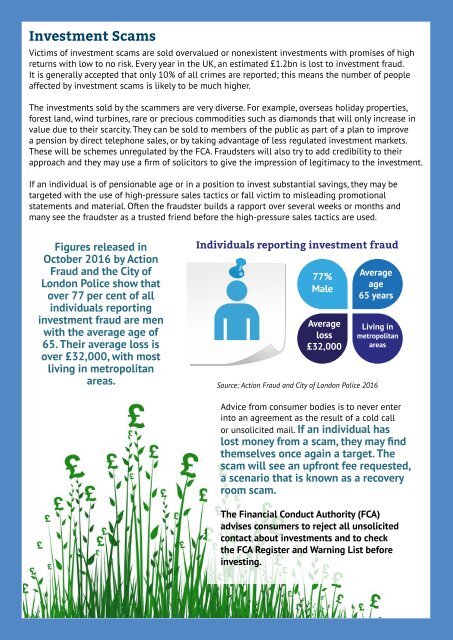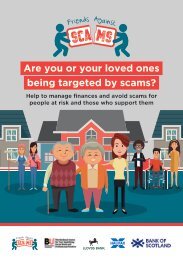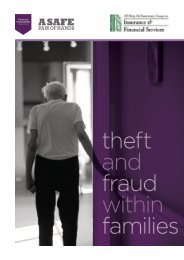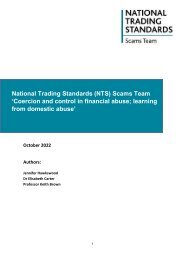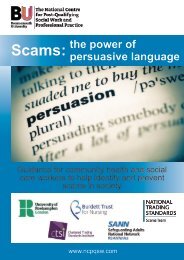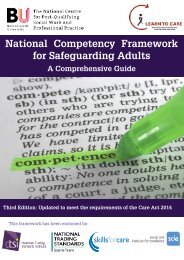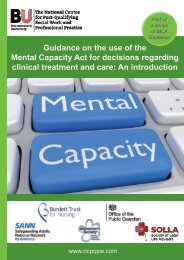Financial Scamming and Fraud
Financial scamming and its impact have been receiving a higher public profile in recent months, yet though it is recognised as a growing problem, there is a lack of clear research and evidence into the scale of the problem, its causes and the impact on the public.
Financial scamming and its impact have been receiving a higher
public profile in recent months, yet though it is recognised as a
growing problem, there is a lack of clear research and evidence
into the scale of the problem, its causes and the impact on the
public.
Create successful ePaper yourself
Turn your PDF publications into a flip-book with our unique Google optimized e-Paper software.
Investment Scams<br />
Victims of investment scams are sold overvalued or nonexistent investments with promises of high<br />
returns with low to no risk. Every year in the UK, an estimated £1.2bn is lost to investment fraud.<br />
It is generally accepted that only 10% of all crimes are reported; this means the number of people<br />
affected by investment scams is likely to be much higher.<br />
The investments sold by the scammers are very diverse. For example, overseas holiday properties,<br />
forest l<strong>and</strong>, wind turbines, rare or precious commodities such as diamonds that will only increase in<br />
value due to their scarcity. They can be sold to members of the public as part of a plan to improve<br />
a pension by direct telephone sales, or by taking advantage of less regulated investment markets.<br />
These will be schemes unregulated by the FCA. <strong>Fraud</strong>sters will also try to add credibility to their<br />
approach <strong>and</strong> they may use a firm of solicitors to give the impression of legitimacy to the investment.<br />
If an individual is of pensionable age or in a position to invest substantial savings, they may be<br />
targeted with the use of high-pressure sales tactics or fall victim to misleading promotional<br />
statements <strong>and</strong> material. Often the fraudster builds a rapport over several weeks or months <strong>and</strong><br />
many see the fraudster as a trusted friend before the high-pressure sales tactics are used.<br />
Figures released in<br />
October 2016 by Action<br />
<strong>Fraud</strong> <strong>and</strong> the City of<br />
London Police show that<br />
over 77 per cent of all<br />
individuals reporting<br />
investment fraud are men<br />
with the average age of<br />
65. Their average loss is<br />
over £32,000, with most<br />
living in metropolitan<br />
areas.<br />
Individuals reporting investment fraud<br />
77%<br />
Male<br />
Average<br />
loss<br />
£32,000<br />
Average<br />
age<br />
65 years<br />
Living in<br />
metropolitan<br />
areas<br />
Source: Action <strong>Fraud</strong> <strong>and</strong> City of London Police 2016<br />
Advice from consumer bodies is to never enter<br />
into an agreement as the result of a cold call<br />
or unsolicited mail. If an individual has<br />
lost money from a scam, they may find<br />
themselves once again a target. The<br />
scam will see an upfront fee requested,<br />
a scenario that is known as a recovery<br />
room scam.<br />
The <strong>Financial</strong> Conduct Authority (FCA)<br />
advises consumers to reject all unsolicited<br />
contact about investments <strong>and</strong> to check<br />
the FCA Register <strong>and</strong> Warning List before<br />
investing.


